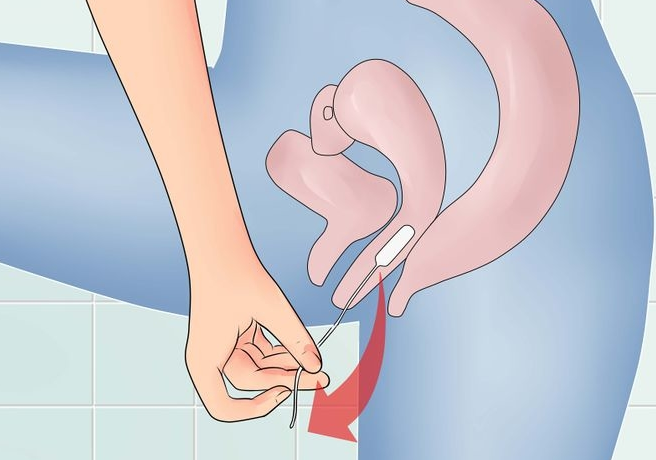Tampons enable you to have your period while still playing sports, swimming, and generally going about your daily life, while barely noticing that you’re wearing protection. But what should you do when it comes to using the bathroom? Can you pee with a tampon? Is it possible to pee without getting the string soaked, or do you have to change the tampon every time you pee? This article will teach you the quick and simple solution to pee with a tampon in, and when it’s necessary to change to a fresh one.
Can You Pee With a Tampon?

Yes, you can. You urinate from your urethra (urinary opening). When you defecate, your stool comes from your anus. You wear your tampon in your vagina, which is an entirely separate opening between your urethra and your anus. You may feel better about moving the string out of the way, however. If you need to urinate, pull the string to the back or side. If you’re going to defecate, pull it towards the front.
If your tampon becomes saturated with urine, it means that you probably haven’t put it far enough into your vagina. You need to take it out and put in a new one.
How to Pee With a Tampon
Now that you know the answer to the question “can you pee with a tampon”, you need to learn the correct steps to do it.
- Take a seat on the toilet. If you’re using a public toilet, you may want to squat above the toilet instead of actually sitting on the seat. Alternately, you can use a seat-liner or place several strips of toilet paper on the seat before sitting.
- Ensure that you have lifted your skirt or dress or that you have pulled down both your pants and underwear before you sit down.
- Squeeze your muscles around your urethra. You won’t have to do this for more than a second, but it’s important to squeeze tightly so that you don’t begin to pee immediately after you sit down.
- Place your hand between your legs and pull your tampon string to the side.
- Keep holding the string against your thigh in order to keep it out of the way during peeing.
- You can also consider reaching behindand pulling the string back in the direction of your anus. Make sure that you only do this if you aren’t going to defecate. The string should also never touch your anus.
- Lean forward a little and begin to urinate. Your hand and the tampon string should be kept out of the way as long as you are urinating.
- Wipe as you normally would. Continue holding your tampon string to the side and use your free hand to tear off a piece of toilet paper and wipe yourself moving from front toback.
- Try not to worry if your tampon string does get wet. Urine is sterile, so there won’t be any health repercussions if you do pee on the string. Worst case, you can squeeze the string with a small piece of toilet paper in order to dry it off before pull up your pants.
At the end of the day, it really comes down to preference when considering “can you pee with a tampon”. Those who worry about smell or who don’t like the feeling of a wet string can always change their tampon.
More Tips on Using a Tampon
- Wash your hands before and after insertion. This will prevent your tampon from becoming contaminated before it reaches your vagina.
- Use multiple kinds of tampons. Tampons can lead to toxic shock syndrome (TSS), which is a potentially serious disease. Tampons that offer more absorbency increase your risk of developing TSS; hence, it makes sense to only use them on the days you need to stop a very heavy flow. Throughout your period, your flow will change on a day to day basis, so consider only using supers for the first couple of days and switching to light or regular absorbency tampons as your period begins to taper off.
- Change your tampon a few times every day. Although the answer to “can you pee with a tampon” is positive, you still need to change to a new tampon every 4 to 8 hoursregardless of your flow. A moist or wet tampon provides the perfect environment for bacteria—the longer it’s in your vagina, the higher you risk developing TSS.
- Don’t use a tampon to stop vaginal discharge. It’s perfectly normal to have some discharge when you’re in the midst of your menstrual cycle—a tampon is not required during that time. If you put one in, it could disturb the natural acidity of your vagina, which can lead to an infection. If your discharge feels excessive, have your doctor check it out.
- Never use a tampon with a torn wrapper. Tampon wrappers are there to protect tampons from dirt and dust. If the wrapper is ripped, the tampon’s cotton can attract all kinds of little things that have no business being in your vagina and cause infection.
- Do not use scented tampons. You might be sensitive to the fragrance in them, and develop an allergic reaction. You may also experience itching sensation or irritation in your private parts, so do not risk it.
For more information on how to use a tampon, please watch this video:
